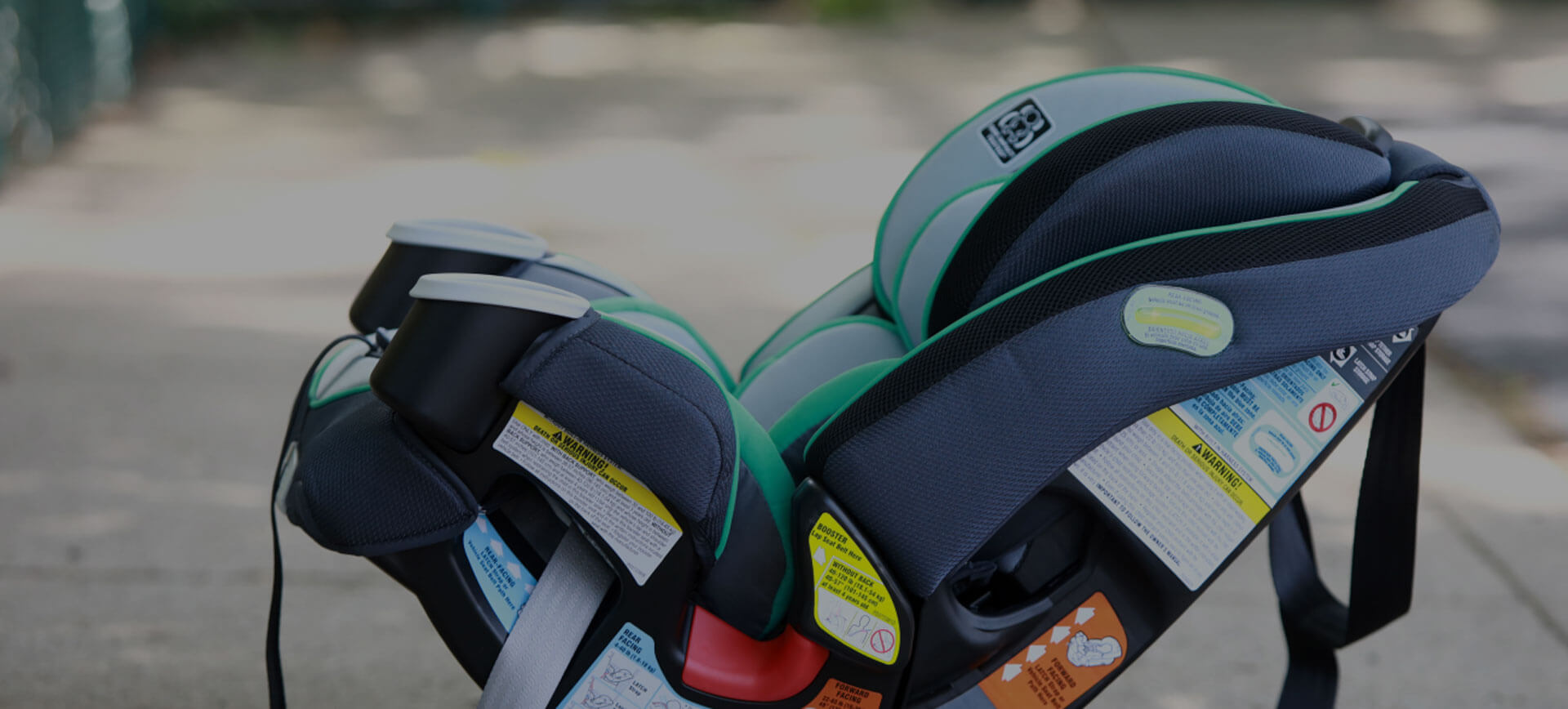A new trend in car seat shopping is counterfeit car seats, mostly sold through online retailers. These seats appear to be knock-offs of more popular brands, and to a caregiver who hasn’t been specially trained in car seat technology, they may look perfectly safe. Unfortunately, there is a big difference between counterfeit car seats and authentic ones.
While authentic car seats are made using a safe, thoroughly tested design, counterfeit car seats are made with cheaper, flimsier materials using unsafe, non-federally regulated designs. The materials and engineering in these counterfeit car seats have not been tested adequately enough to be considered safe, and some have design flaws that can be very dangerous.
5 Ways to Spot Counterfeit Car Seats
So, how can you be sure the car seat you’re purchasing will protect your little one when it counts? Here’s how to spot a counterfeit car seat online so you can steer clear.
1. Check the labels.
Authentic, federally-compliant car seats will contain many safety labels, including a warning label with a yellow header that states, “This child restraint system conforms to all applicable Federal Motor Vehicle Safety Standards (FMVSS).” Take a good look at the labels on the seat you purchased. Counterfeit car seats are often either missing these vital warning labels altogether, or contain labels with grammatical errors.
2. Make sure essential paperwork is included.
In addition to safety labels, car seats are required to come with safety manuals and a registration card. If your seat is lacking this essential paperwork, there is a high probability it is a counterfeit seat.
3. Register your car seat.
Every car seat comes with a unique serial number. Sophisticated counterfeit car seat vendors or manufacturers will use fake serial numbers or serial numbers that have already been registered. By registering the serial number with the manufacturer of the car seat, and confirming that your number is uniquely yours, you can be certain of your car seat’s authenticity. It’s easy to register your car seat from our website (and you’ll get notifications about recalls as a bonus!).
4. Look out for obvious design flaws.
Many counterfeit car seats are missing one very important safety feature present on all federally regulated car seats in the United States: the chest clip. Five-point harnesses are a must-have, so if the car seat you’re looking at online is missing the clip that secures the straps over the baby’s chest, it’s definitely a fake.
5. Beware of third-party sellers and generic brand names.
When researching products from online retailers, steer clear of third-party sellers with strange and unfamiliar names. They may very well be counterfeit car seats. Instead, research car seat brands that are sold in brick-and-mortar U.S. stores, and look for online listings that are shipped and sold directly by the manufacturer itself.
The internet is full of great deals, but at the end of the day, it may not be the best place to purchase such a vital safety device as a car seat for your child. As car seat safety experts, we recommend sticking to brick-and-mortar stores and checking the car seat brand’s website for authorized online retailers.
Did you buy online and you’re just not sure? Find a car seat technician near you who can check and confirm that your car seat is legitimate and safe for your child.
What to Do If You Bought a Counterfeit Car Seat
If you’ve purchased a car seat and you discover that it’s a counterfeit car seat, return the item as quickly as possible. Then, contact the online retailer to ensure they’re aware that the product is counterfeit. Hopefully, this will not only alert them, but prevent the sale of counterfeit car seats in the future.
Should the retailer provide a refund without you having to return the item, please discard it rather than donating it. We want to be sure the item doesn’t end up in the hands of a family who may not know it’s counterfeit.



